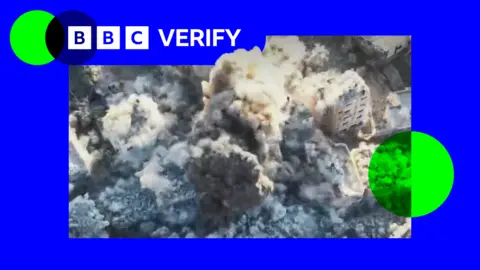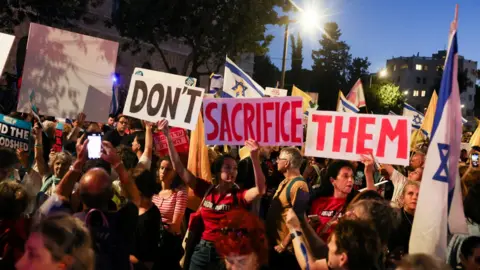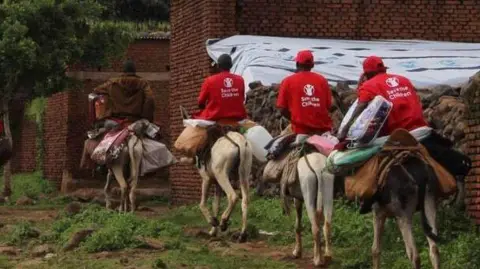The threat of flooding once again looms over the city of Maiduguri, in north-eastern Nigeria, a year after torrential rains and the collapse of a dam left entire neighbourhoods submerged in water.
For many residents who are still bearing the scars of last year's floods, the possibility of a repeat has created huge unease.
At least 37 people died in the floods and two million had to abandon their houses after the widespread destruction of homes, farms and businesses.
Forty-two-year-old Sa'adatu Dahiru lost her two-year-old son.
He died as a result of hunger and fever during the flood. We had no proper food, no medicine, and no safe place to stay.
She told the BBC how her children cried and they had to rush out in the middle of the night carrying only a few clothes, leaving everything else behind.
She says she did receive some state support of 10,000 naira ($7; £5) when the flood happened.
However, the mother of six says government assistance has since halted: Since then, none of the other promises from the government have reached us. We are still waiting, still suffering.
The Borno state government says it has supported local communities impacted by the disaster, citing the establishment of relief camps and food aid as well as cash handouts.
More significantly, the government has begun reconstructing the dam and dyke system at Alau - on the outskirts of Maiduguri - which caused the flooding.
Construction of the dam started in 1986 and it is maintained by the Chad Basin Development Authority (CBDA), an agency of the Nigerian government.
However, more than a decade and a half of the insurgency by the Boko Haram Islamist group in the area has made it difficult to maintain the dam, Mohammed Shettima, head of the agency's engineering department, told the BBC.
The dam is located on the fringes of the Sambisa forest – about 4km [2.5 miles] from the base of the jihadist groups, he explained.
The dykes were worn and because they were not maintained, when heavy rains came last year, the dykes gave way, releasing [the] huge volume of water that flooded the city.
In August two soldiers were killed near the dam and four security agents were killed at the hands of people suspected to be Islamist fighters.
One of the flood victims who has been affected by Islamist violence is Maryam Jidda.
She escaped her hometown of Damboa with her daughter and two grandchildren after it came under attack by Boko Haram around four years ago.
They didn't warn. They came like a dark wind in the night, she recalls.
She thought she had found safety in Maiduguri. Then the floods came and forced her to flee for a second time.
She sat on a broken block from the debris of her destroyed house with her red gown, or jilbab, draped over her head down to the ground.
Eyes forlorn, the 72-year-old cut the figure of someone who had seen years of suffering and hardship.
I stood in waist-deep water, crying, Ms Jidda said as she recounted the life-changing moment water rushed into her compound, before it overwhelmed her house.
She is now living in temporary shelter where food is scarce and water unclean, having lost not just her home but also the photographs and belongings carrying her family’s memories.
Borno Governor Babagana Umara Zulum described the flood response as a daunting task, especially considering the state's 16-year struggle with violent extremism.
He noted that they set up a committee with specific terms of reference to ensure affected families received adequate support, including shelter and food.
Finding shelter for two million people in Maiduguri, a city already hosting over a million displaced by Islamist attacks, presented significant challenges.
The government's priority was preventing water overflow, achieved through desilting rivers and constructing new drainage.
According to the committee's report, a total of 28.2bn naira ($18m; £13m) was raised for support. A significant amount of the funds was distributed to over 100,000 households, alongside food and non-food items.
Borno now seeks an additional 61bn naira to rebuild damaged infrastructure, but concerns linger that such funds will only be approved after another disaster. For survivors like Sa'adatu Dahiru, the looming rainy season is a reminder of their struggle: How do I start again when I have nothing?



















